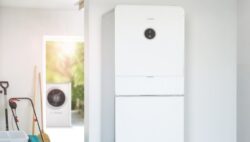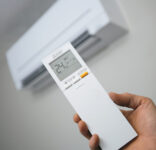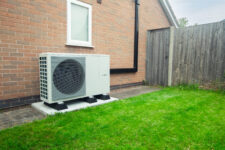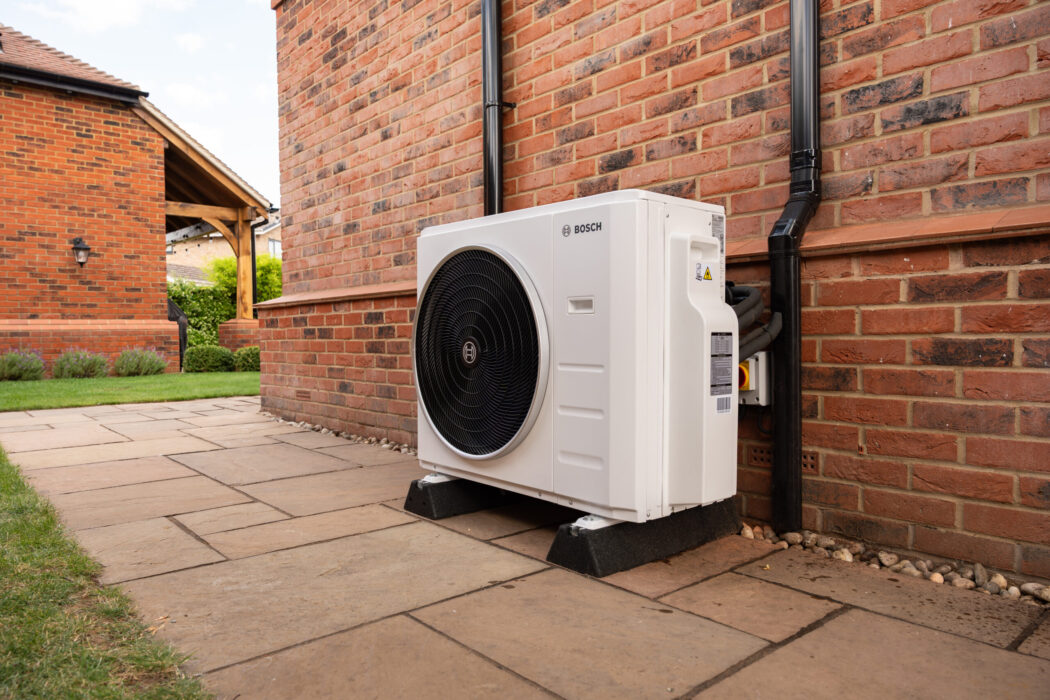
How to Save Money on Air Conditioning: Tips To Spend Less
It’s getting hot in here! This spring/summer we’ve seen some scorching temperatures in the UK, and the temptation to blast the aircon is strong. Especially with more of us working from home. But keeping cool without maxing out your energy bill can be a tricky balancing act.
With over four decades in the heating and cooling business, we’ve collected lots of tips to help you save money on air conditioning and spend less on your energy bills.
Tips at a glance
1.Choose an Energy Efficient Air Conditioning Unit
2. Install the Right Size Unit for Your Room or House
3. Get a Professional Installation
4. Don’t Block Airflow with Furniture Positioning
5. Select the Best Temperature
6. Turn It Up and Down Gradually
7. Use a Smart Controller
8. Turn it Off When You Leave the Building
9. Put it on Sleep Mode at Night
10. Keep your Doors and Windows (Almost) Closed
11. Open Windows At Night
12. Close the Shades on Hot Days
13. Change the Air Filters Regularly
14. Get it Regularly Maintained
15. Seal Any Air Leaks Around Window
16. Replace Old Windows
17. Insulate Your Loft
18. Install Solar Panels
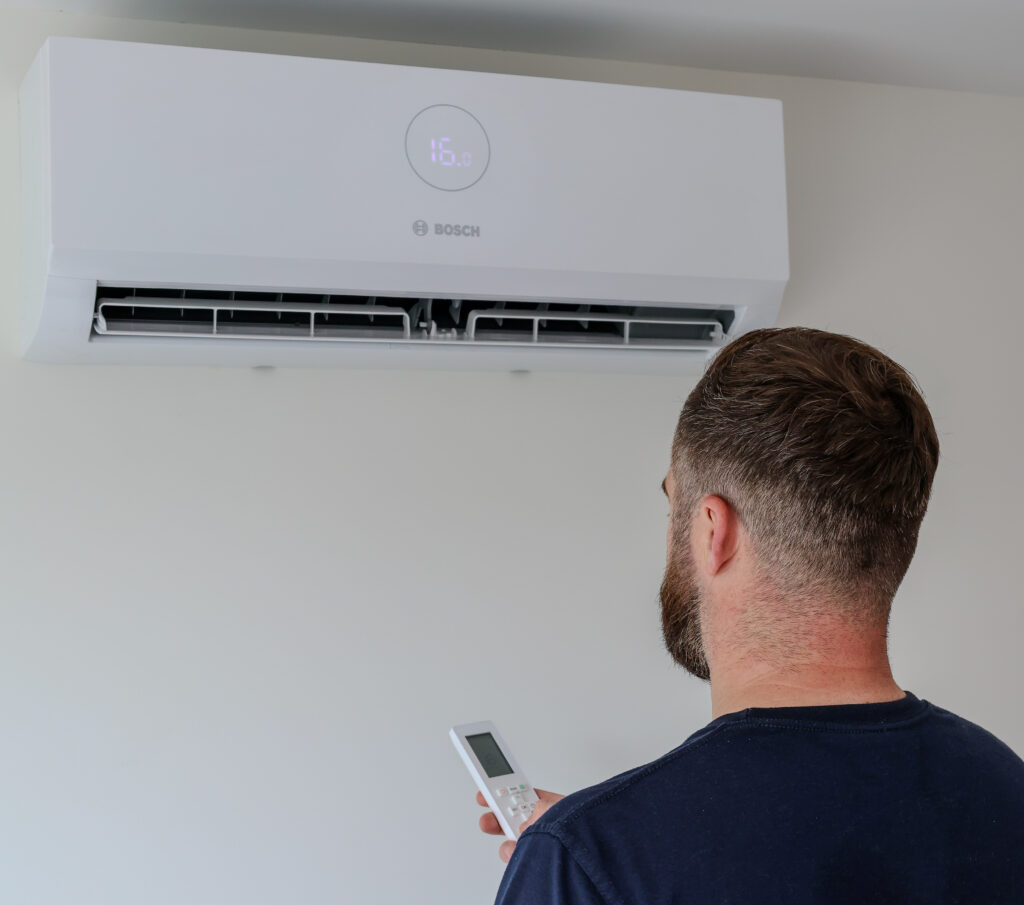
How to Save Money on Air Conditioning Costs
If you’re looking for ways to save this summer, ensuring your air conditioning unit is operating at its best is a good place to start. Following that, try these expert tips to get the most out of your aircon.
1. Choose an Energy Efficient Air Conditioning Unit
The first thing is to choose an air conditioning system that has great energy efficiency credentials. Even if it means spending slightly more on a quality unit, the reduction in running costs will pay off over time. Many modern units also come with energy saving modes and timers so you can optimise usage according to your schedule.
Top tip: Professionally installed air conditioning units are more energy efficient than portable units, plus they’re quieter and more compact!
Top tip: Split unit air conditioners tend to be more energy efficient than wall mounted units.
2. Install the Right Size Unit for Your Room or House
If your unit is too big for the room, you could end up wasting energy (and therefore, money!) While a too small unit will need to work overtime, reducing efficiency. In some cases, it might be cheaper to install several smaller units across different rooms so you can adjust the temperature, space by space. Talk to an engineer to find the most cost-effective solution for your space.
3. Get a Professional Installation
A poor installation can lead to inefficiencies and require more maintenance down the line – two factors that could cost you more. That’s why it’s important to get your air conditioning system installed by an experienced professional.
4. Don’t Block Airflow with Furniture Positioning
If the air vents are covered up with furniture or rugs, it can block airflow, reducing the efficiency of the system and wasting money. For wall-mounted units, make sure they are positioned on walls that are free of cupboards and other obstructions. An engineer can help you plan the best layout for your space.
5. Select the Best Temperature
During the summer months, keeping your home between 22 – 26 degrees Celsius is recommended. However, for the more budget-conscious among us, raising the temperature by just 1 degree can provide a 3% increase in energy savings!
6. Turn It Up and Down Gradually
Keeping the temperature consistent is key when it comes to boosting efficiency and lowering costs. So, rather than suddenly blasting the cold air when the heatwave hits, try keeping your home at a consistently comfortable temperature throughout the season.
7. Use a Smart Controller
A smart controller can save you money by giving you more control over the temperature, even when you’re not at home. Many smart thermostats feature sensors that can turn off the aircon if no one is in, reducing wastage. You can also turn the air on and off from your phone on specific days and times. Different smart controller manufacturers claim different savings, ranging from 8.4% (Google Nest) to up to 31% (Tado).
8. Turn it Off When You Leave the Building
There’s no need to keep your air conditioning turned on when you’re not in to enjoy the benefits. Programme your system to turn on just before you return home from work to ensure it’s cool and refreshing as you walk through the door.
10. Keep your Doors and Windows (Almost) Closed
Flinging your windows open on a hot day may feel like the most natural thing in the world, but it could be costing you. If the air temperature is hotter outside, this could actually be making your home warmer.
Instead, on very hot days, try keeping your windows shut (or only open a crack) so the air conditioning can do its work properly.
11. Open Windows At Night
Keeping windows open at night can improve ventilation and bring in some cooler air. Just remember to turn the air conditioning off at night and only open windows that don’t pose a safety risk.
12. Close the Shades on Hot Days
The hotter the room, the harder the aircon has to work – and the more it will cost. In sunny south-facing rooms, keeping the curtains or blinds closed during the hotter parts of the day can block out the heat.
13. Change the Air Filters Regularly
Most air conditioning unit filters need to be replaced every six months. Over time, filters become clogged and prevent the unit from operating at its best. Staying up to date with replacing the filter improves efficiency and saves pennies. Every little helps!
14. Get it Regularly Maintained
Regular maintenance of your air conditioning unit is really important when it comes to efficiency and cost saving. Preventative checks will likely be much cheaper than fixing a problem if left too long. It also means your system will be in tip top condition so you get more out of it, for longer.
Regular maintenance includes:
- Changing the filters
- Keeping the coils clean
- Dusting the vents
- Getting any issues checked out by a professional
15. Seal Any Air Leaks Around Window
Did you know that about 30% of a home’s heating energy is lost through windows? This means that any extra gaps or holes can make a significant dent in your energy bills in the long term. Check for any gaps around window frames, plumbing access, air ducts and outlets. Then caulk and seal the cracks.
16. Replace Old Windows
If your windows are very old and single glazed, it could pay in the long term to get them replaced. We know this option isn’t for everyone as new windows are costly, but it’s worth considering if you have the budget.
17. Insulate Your Loft
As well as windows, other places that air can be lost are lofts and garages. If the cool air generated escapes, your cooling system has to work extra hard to compensate. Insulating your home saves on energy costs year round.
18. Install Solar Panels
Installing solar panels is an excellent way to reduce electricity bills – especially for the eco conscious. Use the power generated by the sun to run your air conditioning system and sell any unused energy back to the grid!

With current average annual electricity bills in the UK costing around £950.07, just a 10% reduction could save you almost £100. These small, everyday savings could make a big difference to your household budget. A welcome relief as temperatures rise!
Does your cooling system need an upgrade? Don’t wait for the next heatwave! Learn all about our specialist air conditioning installation service, or have a chat with our team to find the best and most affordable option for your home.
FAQs About the Best Ways to Save Money on Air Conditioning
Got more questions about saving money on air conditioning? Here are some answers to some of our most frequently asked questions:
How much does air conditioning cost to run?
In the UK, a small air conditioning unit costs around £0.37/hour to run, and a large unit costs £0.49/hour. However, this is dependent on the efficiency of the unit, the insulation of the building and how often it’s turned on.
How to Know if Your AC Unit is Wasting Energy?
Seeing your energy bills creep up despite not changing your usage? This may be a sign that your unit isn’t working at its best. Other things to watch out for include inconsistent temperatures in different areas and longer cycles.
What’s the Best Temperature for Air Conditioning to Save Money?
The ideal temperature for energy-efficient cooling is around 22 – 25°C. Setting your thermostat lower uses more energy and won’t necessarily cool the room faster. Keep it consistent and avoid extremes to stay comfortable without the cost.
What are the Best Air Conditioning Settings to Save Money?
Use the “eco” or energy-saving mode if your unit has one. Set the fan speed to medium or auto and make use of a programmable timer to limit run times.
How to Save Money on Air Conditioning in an Apartment or Flat?
Maximise passive cooling first: close curtains during the day, open windows at night and use ceiling or portable fans. Remember to keep internal doors closed and only cool the rooms you are using. If you own the unit, clean or replace filters regularly and service it annually to improve efficiency.
Is Aircon Cheaper to Run Than Central Heating?
Not usually. While air conditioning may offer efficient cooling, central heating is typically cheaper to run in colder months, especially in well-insulated homes. However, some modern heat pump AC units can be cost-effective for heating.
Does Leaving Your AC on All Day Save Money?
No. Leaving your AC on all day generally wastes energy. It’s more efficient to use a timer or smart thermostat to cool your space only when needed. Maintaining a steady but moderate temperature is cheaper than running your unit constantly.
Is It Cheaper to Keep AC at a Constant Temperature?
Yes, to a degree. Keeping your AC at a stable temperature (around 24–25°C) avoids the energy-intensive spikes caused by turning it off and on repeatedly. However, there’s no need to run it 24/7. Set a schedule based on your routine to balance comfort and cost.
